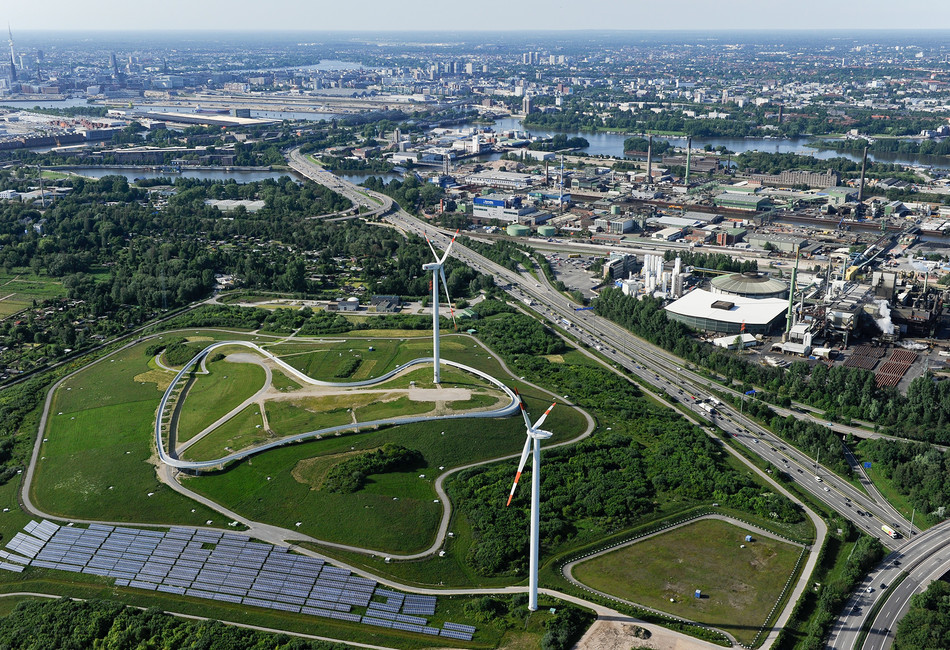Taking The Power Back: How Hamburg Regained Control Of Its Energy Utility
By Anselm Sprandel, Director-General for Energy and Climate, Ministry of Environment and Energy, City of Hamburg
A Case Study on How to Remuncipalize a Utility: How the City of Hamburg regained control of its utility and the tools to advance the city’s climate protection and energy transition agendas.
Background on Hamburg’s Privatized Past
In the 1990s and the early 2000s, the Hamburgische Electricitäts Werke (Hamburg Electricity Works or HEW) was sold to the Vattenfall Group to balance the city’s budget. The selling of city assets to balance budgets was not uncommon at the time. Many cities have done it globally but many more are reconsidering their options and returning assets to city control.

At the time of Hamburg’s sale to Vattenfall, HEW comprised electricity and district heating operations as well as gas supply through its subsidiary HeinGas. (The sale took place before the unbundling, reorganization and regulation of the German electricity market, and the gas operation was later sold by Vattenfall to the E.ON Group.)
The sale was controversial politically and socially. Not only was Vattenfall’s poor corporate image problematic for the public, but so was the construction of the coal-fired power station in Hamburg’s Moorburg district. People quickly realized that privatization was a mistake and that the city had lost a great deal of influence as a result.
In response, the municipal company “Hamburg Energie” was established in 2009 to provide households with green power and be active in the renewable energy sector. And in 2011, the City of Hamburg negotiated with electricity, district heating and gas grid companies to take over a 25.1 per cent share. The movement to remunipalize had the foothold it needed to succeed.
The Return of the Utility to City Control
Two years later, in 2013, there was a referendum on the energy networks, initiated by stakeholders in Hamburg. The referendum called for a complete public buy-back of electricity, district heating and gas grids, with the binding goal of a socially just, climate-compatible renewable energy supply under democratic control.
They won. The referendum was a success. And so the Hamburg Senate began implementing the referendum decision by drawing up contractual agreements with Vattenfall and E.ON. The following year, 2014, witnessed the complete remunicipalization of the electricity grid, and the takeover took the form of a share deal and included the acquisition of the workforce.
Opportunities Offered by Remunicipalization
With the remunicipalization, the City of Hamburg now has energy companies that fully cover the energy value chain. It consists of the following companies:
- Electricity grid: Stromnetz Hamburg GmbH (formerly Vattenfall-Gruppe)
- Gas grid: Gasnetz Hamburg GmbH (formerly E.ON-Gruppe)
- District heating : Wärme Hamburg GmbH (formerly Vattenfall-Gruppe)
- Hamburg Energie GmbH: (for the production and sales of renewable energies)
The city of Hamburg once again has important tools at its disposal to advance climate protection and the energy transition in Hamburg. As the owner, the city can control the development of the energy supply in the interests of consumers, security of supply, climate protection and the energy transition.
An energy company owned by the city is the best protection against excessive prices, as public companies are not geared toward maximizing profits. Additionally, synergies with other public companies can be pursued, and the city has access to favourable financing, which also has a positive effect on consumer prices.
Next Steps
The binding goal of a socially just, climate-compatible renewable energy supply under democratic control is next. The real work is ahead. For example, sustainable strategies must be developed and implemented for the following:
- Customer advisory boards
- Climate protection strategies in energy companies
- Renewable energy expansions
- Energy poverty solutions
- Role modeled approaches for the industry
The next strategic steps will be to develop a heat and energy supply concept for Hamburg that takes into account the areas of electricity, district heating, gas and important innovation topics, such as sector coupling in order to advance climate protection and energy transition in Hamburg.
Concrete decarbonization measures must also be implemented. Coal is one of the clearest decarbonizing opportunities here. The Hamburg Coal Phase-Out Act, which passed in June of this year, requires municipal energy utilities to shut down coal-fired power plants by 2030 at the latest. The Wedel coal-fired power plant is to be shut down by 2025 and the HKW Tiefstack by 2030.
Energy supply companies owned by the city will no longer be allowed to purchase coal heat, effective immediately. With the acquisition of the district heating company, the City of Hamburg now has the opportunity to replace the coal-fired cogeneration plants, which is good for climate protection and good for social justice.
Planning for the replacement of the Wedel coal-fired power plant is now in full swing. The Wedel coal-fired power plant will be replaced by a combination of renewable or climate-neutral heat sources (waste incineration, industrial waste heat, and waste heat from a sewage treatment plant process) and a gas-based combined heat and power solution.
Preliminary planning for the replacement of the Tiefstack coal-fired power plant will begin in 2020 as part of a participation process for which a committee of experts is planned.
Lessons Learned for Remunicipalization Efforts
A recommunalization project is demanding. A few of the many tasks and topics that are needed and necessary:
- Time, patience and money
- Project management skills
- A competent team within a public administration. Ideally, this team should have direct access to the mayor
- Stakeholder analysis
- Consultants for legal, corporate law, business management issues, company valuations and due diligences
If your city is interested in discussing further how we remunicipalized our utility, what pitfalls to avoid and what additional best practices to employ, please reach out to us as we’d be happy to share additional lessons learned and tips for making the process as seamless as possible.

